By Shkëlqim Abazi
Part Fourteen
Memorie.al / I were born on December 23, 1951, in the black month, of the time of mourning, under the blackest communist regime. On September 23, 1968, the sadistic chief investigator, Llambi Gegeni, the ignorant investigator Shyqyri Çoku, and the cruel prosecutor, Thoma Tutulani, massacred me at the Department of Internal Affairs in Shkodra, they split my head open, blinded one of my eyes, deafened one of my ears, after they broke several of my ribs, half of my molars, and the thumb of my left hand, and on October 23, 1968, they took me to court, where the unfortunate Faik Minarolli gave me a ten-year political prison sentence. After they cut my sentence in half, because I was still a minor, sixteen years old, on November 23, 1968, they took me to the political camp of Reps and from there, on September 23, 1970, to the Spaç camp, where on May 23, 1973, in the revolt of the political prisoners, four martyrs were sentenced to death and executed by firing squad; Pal Zefi, Skënder Daja, Hajri Pashaj and Dervish Bejko.
On June 23, 2013, the Democratic Party lost the elections, a perfectly normal process in the democracy we claim to have. But on October 23, 2013, the General Director of the “Rilindja” government sent Order No. 2203, dated 23.10.2013, for; The dismissal of a police employee. So Divine Providence was intertwined with the neo-communist “Rilindja” Providence and, precisely on the 23rd, they replaced me, no more and no less, with the former Security operative of the Burrel Prison. What could be more meaningful than that?! The former political prisoner is replaced by the former persecutor!
The Author
SHKËLQIM ABAZI
Continued from the previous issue
R E P S I
(Forced labor camp)
Memoir
A few steps further, a hunched person was taking something out of a bag, and since the light was dim, I didn’t recognize who it was, but when I saw the white label with the name Tomor Balliu on the sack, I addressed him: “That sack is mine! Maybe you took it by mistake?”
“What are you looking for, you scoundrel, what’s wrong, is this yours? This is Tomor’s sack!” he replied, with the surprise of someone who is being sought to be taken from. The depot keeper was a few meters away, and when he heard the dialogue, he intervened: “Hey, you empty-head, what do you want with someone else’s sack, this guy eats bread with Tomor. Go on, break your neck, get lost, you damned thief!”
“No, I swear, he left them to me himself!” – And with two cloth bags in his hand, which I didn’t know what they contained, he started to go outside.
“Where are you taking those?” – I shouted and reached out to grab him, but he pushed me without turning his head and quickly left. I followed him, and caught up with him on the stairs that went up to the building, I grabbed the bags but he was holding them tight. From the force of the pull, one of them tore and the white beans spilled out onto the cement, bouncing like pebbles. Two of my acquaintances, who were descending the stairs at that moment, saw the scene and came to my aid. One grabbed the thief by the throat, while the other pulled the bag from his clenched fist.
“What did you steal, Ferit Lopa! You rotten thief!” – And he gave him a powerful punch in the stomach. The person who was hit crumpled from the pain. I thanked those who came to my aid and with the untorn bag, I returned to the depot to get what I needed.
“He’s an ordinary thief; I don’t understand why they brought him to us, for God’s sake!” – The depot keeper complained to me, as if he was apologizing. – “I’ve been in prison for so many years, but I’ve never seen such a clown! No, brother, even when we had nothing at all to put in our mouths, there were no thefts here! Now, they’re even bringing us pickpockets for political reasons and they’ve brought trouble into our midst. You can’t guard against this kind of person, he’s like a ghost, and he enters where you don’t expect him and leaves where you don’t suspect him!
He has even entered the sheds, where most of the people have been quarantined. You can’t handle this guy, brother Çim, he’s like a mole, and he enters here and comes out there! Woe to us miserable people, what the communists are doing to us now! They want to discredit us with these unmannered types. These are a negative example for the young people, they teach them bad habits! We’re in big trouble, my boy!” – The dear depot keeper concluded.
I took what I needed and returned to the fire, where, to be honest, when I finished the soup, it had become inedible, especially for the sick. It didn’t even resemble soup, because after I left it on the fire longer than I should have, to let it boil better, the pot had scorched and the soup was burned, it had turned into a foul-smelling mush. But the sick people wanted to eat. I looked and looked, I found Bajram and gave him the necessary provisions from the beginning, and then I thought of lying down on the bed because I didn’t feel well.
I parted with Bajram and headed for the room. For several months, those of us who worked in the galleries had been settled in the rooms of the three-story building, specially built for us. The other prisoners, that is, the surface workers and the “six-hundred-ers,” continued to sleep in the old corrugated metal sheds. In the rooms, they had crammed thirty of us, with two-story wooden beds. We were tight, but in the winter at least, we felt warmer. During the flu period, the rooms were almost empty, because most of them were in quarantine and the others who were not sick went to work in shifts.
According to the regulations, food and clothing were not allowed to be kept in the rooms, but in separate depots. But the prisoners violated it; we would hide them under the pillow, to have them as close as possible to moisten our mouths. Even the smokers would light a cigarette, as if in secret, while they kept the bags of tobacco or the cigarette packs in plain sight. For this category, even greater tolerance was given, although it was not written in the internal regulations. This blind-eye was practiced for a long time and continued as a routine at that time as well. According to the smokers, there was another more noble reason; supposedly the smoke and the smell of tobacco would to some extent exterminate the parasites that swarmed in abundance in the camp sheds. This served as an alibi, even for the blind-eye of the police.
At the entrance of the door, I almost ran into a man who was rushing out of the room. He was hiding something under his fur coat. From the speed, some cigarette packs fell to the ground. But he didn’t stop to pick them up, he ran further down the corridor. This behavior aroused my suspicion that he must be a thief. I followed him carefully. When he went down the lit ramp of the stairs, I recognized him, it was Ferit Lopa. An hour ago I had quarreled with him, about the sack of food. At that moment I remembered the words of the old depot keeper about the thefts in the rooms and I rushed after him. Some prisoners who were hanging out in the square in front of the building, when they saw Ferit rushing down the stairs, blocked his way; this fragment of time served me to catch up with him. He was physically much bigger and stronger than me, but since I had the right on my side, and at the same time I also enjoyed the sympathy of my fellow sufferers, I dared and punched him under his flattened nose.
Blood gushed from both nostrils, but he didn’t let go of the bag from his armpit. Those who witnessed this scene were surprised: “what could have happened to him?” everyone knew me to be calm, no one considered me a troublemaker. At first, they were stunned, but when they saw Ferit holding something under his fur coat and me hitting him a second time, they understood that something special must have happened. “What happened?” one of them asked me. “He was stealing in our room; he took these that he’s hiding from there!” – I replied. But I didn’t know what exactly he had stolen and to whom it belonged. “An hour ago, I caught him in the food depot, stealing from Balliu’s sack!” – I told them and in an attempt to pull the bag from his hands, I attacked him again.
At this point, others had also approached and formed a circle, in the center of which Ferit and I were stuck. At that moment, he resembled a fox caught red-handed in the chicken coop. At that moment, a large-bodied man from Dibra, broke away from the circle and with a hand like a paw, grabbed him by the throat. Squeezing him with all his might, he almost popped his eyes out. The thief, just like the cunning fox that leaves the prey after being caught in the trap, opened his arms and dropped the bag to the ground. The commotion attracted the attention of the internal guard, who approached and as soon as he saw the bloody person, he took out his whistle and started blowing it furiously. As soon as the alarm was given, two other police officers appeared there in the blink of an eye.
The curious people dispersed, each to their own business, and we remained there, the three police officers, me with the bag in my hand, Ferit Lopa, Sakip Kaloshi, the giant from Dibra who came to my aid, and three or four others. Police officer Prenga, one of the most brutal of those years, took out the handcuffs and addressed me. Without asking how the truth stood and who the culprit was, he handcuffed me. Despite the attempt of the friends who saw the event to explain that I was innocent, I found myself handcuffed and ten minutes later in the camp dungeons, in a temperature of minus fifteen degrees. After two hours when I was waiting for an explanation, the problem got even worse, instead of the culprit being punished, I was sentenced to ten days in isolation, for assault and intentionally harming a person. Whether I wanted to or not, I suffered the consequences. Because of Ferit, I had to pace the periphery of the cell, for ten days and ten nights.
Together with me, Sakipi also ended up in the dungeon, but for the same reason. I felt sorry for him, he was punished unfairly, just because he stood up for me and I felt guilty. They put us in different cells. As soon as they closed the doors on us, I apologized: “I’m sorry, Sakip, I’m sorry that because of me you also ended up in a cell!” “No, man, you didn’t put me in here!” – He cut me off. “Of course, but I was the cause!”No, my friend, that scum deserved a good lesson! That thief should have his ribs broken!” Sakipi, who was good and kind to everyone, had been an absolute champion in free wrestling, and it was even said that he had no rival at all in his weight class.
In any other country, he would have been a national pride in sports, he would have become rich, but in Enver Hoxha’s communist Albania, the individual was not valued, no matter how much he excelled over others, if he was not also politically acceptable. Sakipi did not meet this criterion, he was a Kalosh and as such, he had to put his strength in the service of the people and where better than in the pyrite galleries in Spaç, could they exploit it. But Sakipi, as physically strong as he was, was just as fragile; under that rough appearance, a gentle spirit, even to the point of humility, was housed! When I got to know him better, I was surprised by that giant; he was moved more easily than a child.
Every time he received letters from his family, he would separate from the others, find a corner and read the letter in solitude. A few months after the episode of the fight with Ferit, I found him in a corner, leaning against the trunk of an acacia, reading the letter he had received that day. When I approached him, I noticed that he had tears in his eyes, I thought he might have received some bad news, so I asked him: “Sakip, what happened, do you have family problems?” “No, Çim, thank God they are fine, but…, – he paused for a moment and with his big hand wiped his tearful eyes. – The longing for loved ones is corrosive, my friend!” “I’m glad they’re fine, it happens to all of us!” – I said to him to alleviate the feeling of weakness a little. “Over time it will pass! You are new in prison, you will get used to it!”
Two days and two cold nights passed. Whoever has been punished in the camp dungeons knows very well what it means: to be in isolation. The dungeons of Spaç were designed in such a way that in winter the cold would penetrate to the bone and in summer, the unbearable heat would almost suffocate you. At that time there were a total of four, later others would be added. They had concrete slabs, about two meters and twenty centimeters high, two and a half meters long and one meter and twenty centimeters wide. The iron doors were locked from the outside with a bolt and a padlock, but they were not sealed on all sides; “the wind whistles for the fun of it,” my friend, Shyqyri Gruda, liked to say ironically. The position of the place where they were installed, as the highest point of the camp, exposed them to the biting wind in winter and the suffocating heat in summer.
To find yourself in the isolation rooms, as the command called the dungeons, you didn’t have to perform any real heroism; for example, trying to break down the gate and escape or climbing over the multi-layered barbed wire fence; in such cases, a bullet would await you without warning; nor did you have to argue with the police or not obey orders. No, it was very simple: it was enough for one of the police officers to feel like punishing someone; to catch you with a lit cigarette in the shed even though he himself might have a cigarette in his mouth at that moment; to be even a minute late for roll call; to look askance at the head of the technical office, or the foreman, or any of their lackeys, from those who were considered rehabilitated; to not meet the norm, which happened often; so, for a thousand and one of the most banal reasons, you could end up in the isolation rooms, from one to thirty days. This depended on the person being punished and on the mood of the service personnel.
So, isolation remained a prison within a prison. Those two days from the two we were initially, we became twelve, three people for each dungeon. The reasons, as I mentioned above, were ordinary. Since the flu had taken over the camp, with the insistence of the command, the imprisoned doctor was stingy with medical reports and the first ones who paid the price were the young people. Out of the twelve who were there, eleven were between the ages of twenty and twenty-seven, only Sakipi was a little older, so he benefited from this and they took him out of the dungeon. In the cell where they had locked me, they also brought my two friends, Shuaip Seiti from Shkodra and Jorgo Papa from Aliku of Saranda. Even if I had looked with a candle, I would not have found more cheerful company.
Now the hours passed faster. They would ask me to recite French and Italian poems, as well as their translations into Albanian, done by the masters of translation in prisons, Kudret Kokoshi, Zef Jushi, etc., but also by amateurs, like me and some young people who were in the first steps. When my repertoire ran out, we would listen with pleasure to the beautiful songs of Shkodra, sung by Shuaip and accompanied by us, even if not with skill, then Jorgo would sing songs in the Greek language. Jorgo was indeed a born singer. He interpreted the songs of his side with such passion, that even though I didn’t understand the content, the beautiful Greek sounds and the plaintive melodic line would carry you away and take you to another world, far from the barbed wire.
Thus, with this company, the cold and the torture of isolation were more easily endured. In the afternoon of the third day, they opened the door of our dungeon and pushed in with punches and kicks, a person who was tied up. The handcuffed man, amidst groans, fell on our feet. As soon as he hit the cement, the door closed immediately, while we leaned over him to help him as much as we could. Of course, we couldn’t remove the handcuffs, because they were locked, but we could ease his pain, by rubbing his fingers and the palms of his hands. The dim light cast by the lamp placed inside an iron cage fixed on the door, did not provide a clear view, we did not see who the tied person was. Shuaip, who was closer to the head of the tied person, suddenly spit in his face: “Ptuhh, you pimp!”
I was stunned. I didn’t expect to see such an action, especially in that isolation, my dilemma disappeared within a few seconds, when I heard Shuaip cursing in dialect: “Eh, you son of a bitch, you rotten thief, they just put you in here to spy on us!” – And he was about to hit him. I grabbed his arm. “Don’t Shuaip, what are you doing, he’s tied up!” – I intervened. “Oh, don’t make me, I swear, I am in your trust now!” – I recognized the voice of Ferit Lopa. “Let me go, I will kill this whole rotten thing, this son of a pig, who has rotten the whole camp with his thievery!” – Shuaip fumed. “Leave him!” – I repeated. “It’s strange with you, Çim, why are you so kind-hearted, man, don’t you know that because of this trash, you are here now!”
“I know what this “malaga” wants, he’s a piece of shit…, – Jorgo intervened in a mix of Albanian and Greek. – But leave him alone for now, Saip, we’ll deal with him when we get out!” “Calm down my friends! I don’t think this is the right time and place to take revenge on this type. I know why they put me here, but I don’t understand why they put him here too! I have a feeling they brought him here on purpose to provoke me, so please, be cool-headed! In any case, we will have plenty of time to clear things up with Ferit and I think we should start as soon as they remove the handcuffs!” I concluded my compassionate speech.
Ferit had his eyes fixed on me with a strange look, similar to the gaze of an animal that was begging not to be mistreated. It was the first time in my life that I had encountered such eyes; the eyes of a frightened animal that is waiting to be slaughtered. Those two eyes, as if they were pleading! I felt good about the intervention; I had stopped the continuation of the lynching, on a submissive and irresponsible animal. I even tried to turn it into a joke. I was impressed by the word “malaga” that Jorgo uttered in anger. I didn’t understand Greek, but it didn’t take much thought to guess that it must have been an offensive word but, just for fun, I connected it to the well-known Spanish wine, which is produced in Malaga, from which this quality product got its name:
“Tell me, Jorgo, are you so angry with Ferit that you want to get him drunk with such an expensive wine, like Spanish ‘malaga’?” – I teased him! “What wine to give to this blackguard, you idiot, he needs poison!’Farmaq,’ you’d better say!” – Said Jorgo, laughing, then added: – “‘Malaka’ in Greek is a very offensive word, which more or less corresponds to the Albanian insults, ‘i poshtër’ (vile), ‘maskara’ (scoundrel), ‘qelbësirë’ (filth), ‘zuzar’ (rogue), ‘i pa nderë’ (dishonorable), and so on, as many as you want! Now do you understand what I gave him? Poison, this blackguard needs poison!” – Jorgo repeated the linguistic explanation. Despite all these debates, we tried to loosen Ferit the blackguard’s tied hands a little, until the police came and removed the handcuffs. That night we let him calm down, we even gave him a part of our meager food, because he was not in a state to eat.
The next day after we finished our needs in the bathroom and the police officer on duty left, we started talking to him. Ferit was a somewhat strange type, he hated communism, in his own way. He had very original views in this regard. When I asked him why he was against it and how he ended up in prison, when there was no political reason, he, with a nasal voice, gave me a long lecture, of course with the most banal and impoverished vocabulary I had ever heard, which did not meet any ethical criteria to be written in these memoirs, but in any case I will summarize it in my own words. But before we get to that, I would like to describe in broad strokes the physical appearance of this deformed type.
Ferit at first glance, gave the impression of a prehistoric being, of a species on the verge of extinction; a Neanderthal type, a rudimentary remnant inherited from the past, to testify to the Darwinian theory of evolution. He was stocky, of average height, almost without a neck, it seemed as if his head was attached directly to his shoulders. Slightly hunched forward, he gave the impression of a giant monkey, representing the first stages of separation from the animal world. His upper limbs were longer and more developed, almost reaching below his knees and ending with a pair of paws, similar to a chimpanzee’s; while his legs were short, in proportion to his body. When he walked, his head was held low, it seemed as if this mass of flesh sewn onto those shoulders, would break off at any moment and fall to the ground.
He had a very irregular face, as if an amateur sculptor had decided to make fun of him by rolling plasticine balls one after the other; two puffy cheeks, but not similar, one would always be more swollen than the other, so much so that you would think it was swollen from the pain of an infected molar. The nose was like a squeezed tomato, with two wide nostrils above the shapeless lips, which reinforced the idea that you were looking at a photocopy of an orangutan’s snout. This flat face ended with a bulging forehead in the area of the eyebrows and extended towards the hair with such a slope, that it brought to mind, again, the figure of a monkey. Somewhere in the middle of this mass of flesh, two cracked holes appeared, where two small gray spheres swarmed with the speed of a weasel, so, even his eyes resembled the luminous pupils of a predatory and cunning animal.
Perhaps these physical peculiarities were the main reasons that influenced this person’s kleptomaniac character. As agile as he was in physical actions, he was as clumsy in intellectual activity, his brain absorbed signals late, so his psychomotor reactions were also delayed. Everything in this individual was focused on instincts; he performed actions simply as physiological needs. This was one of the reasons why this person put all his senses into action, to meet immediate needs, but these, in the fastest and most convenient way. This type stole instinctively, lied instinctively, and performed physiological needs instinctively as well. By living in different social groups, he had gained some additional reflexes, conditioned by the community with which he had had the chance to co-exist. He was a born slacker; he didn’t like to exert himself to secure material goods.
In childhood, he didn’t like school, so at the age of fourteen, he abandoned it without even finishing primary school. After that age, they arranged for him to work in one of the many mines in his district, but he didn’t like this either. He didn’t manage to adapt to work, so from that age, his need to secure food made him return to his instincts. He started to steal, was caught by the police, was advised and forgiven, and was returned to the mine. There he would start from the beginning, in the same way; theft. When he turned sixteen, he was sentenced and then, he would get out and steal, and get sentenced, it continued until in addition to the ordinary sentence, they also added a political article and he ended up with us, in the Spaç camp, now a politician. Memorie.al




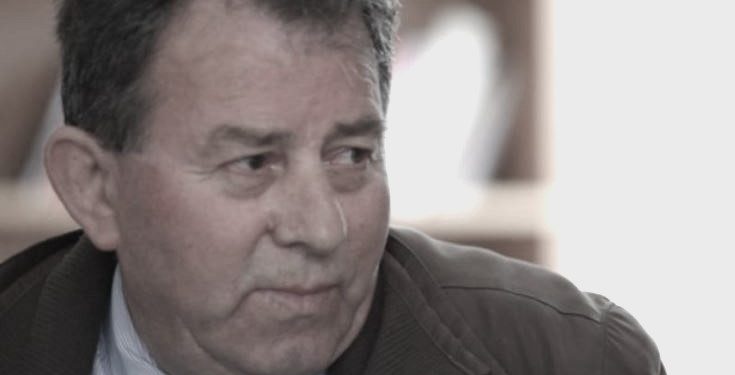
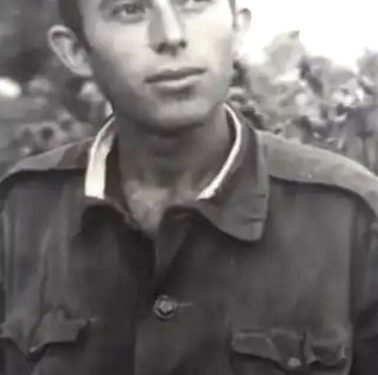
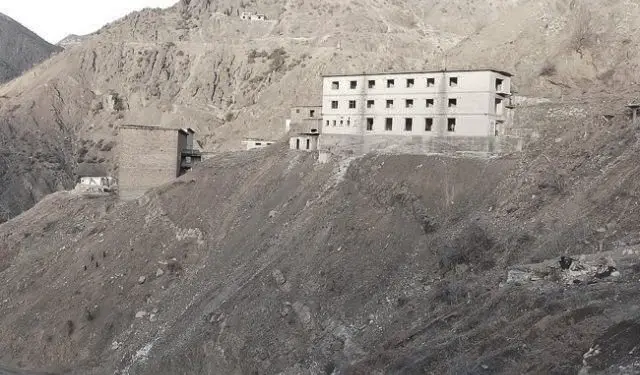
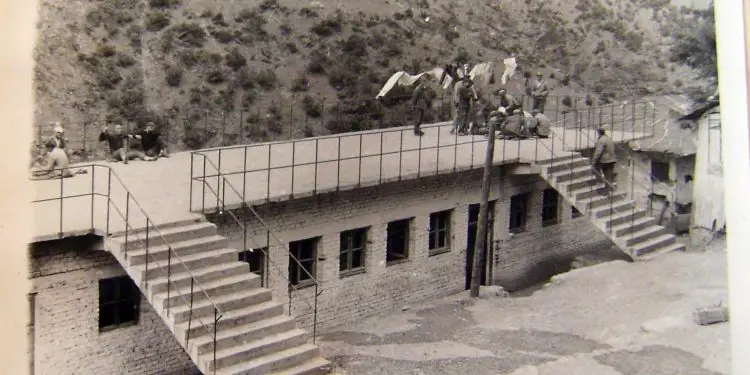
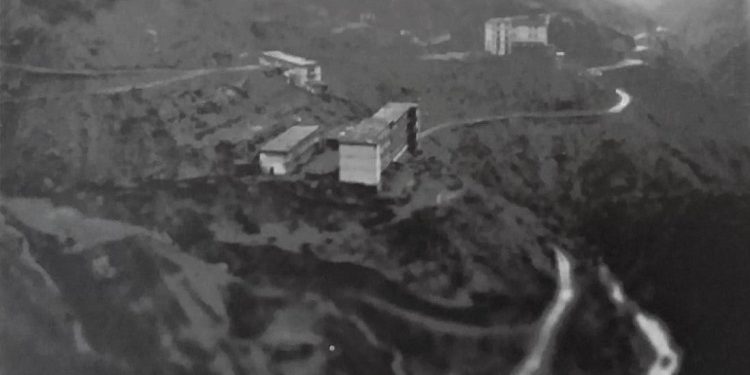
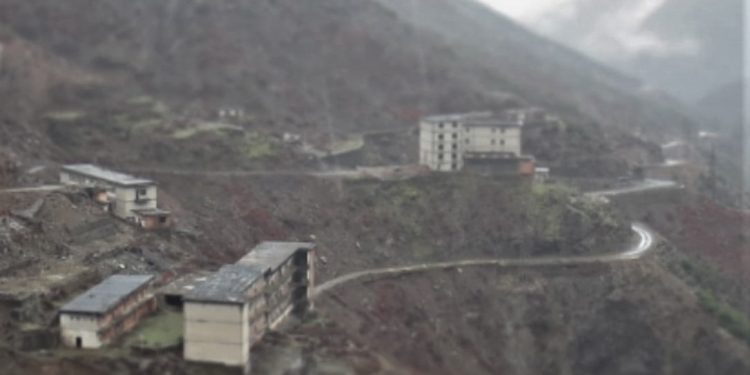



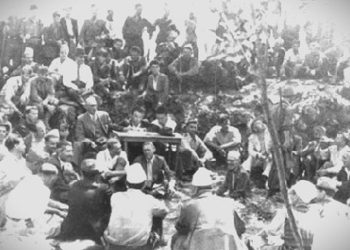
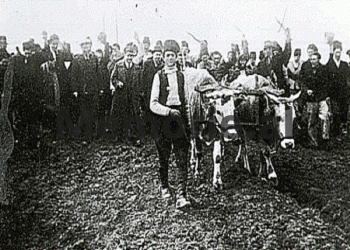
![“They have given her [the permission], but if possible, they should revoke it, as I believe it shouldn’t have been granted. I don’t know what she’s up to now…” / Enver Hoxha’s letter uncovered regarding a martyr’s mother seeking to visit Turkey.](https://memorie.al/wp-content/uploads/2026/01/Dok-1-350x250.jpg)
